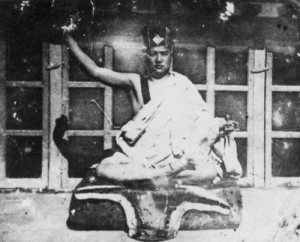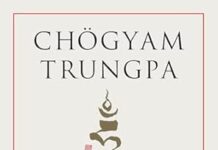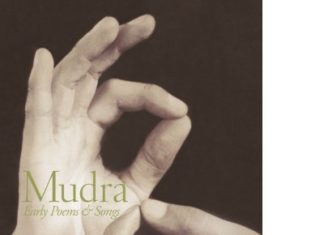
Black Hat, Black Mountains
I met the 16th Karmapa in 1976 when he was invited to a farmhouse in the Black Mountains of Wales. If there is one event which I can say changed my life, this was it.
Karmapa occupied the throne completely. He had a spiritual dignity that made it his rightful seat, just as the lion proclaims his natural dominion. His eyes seemed to cover all directions and dimensions: the people crammed together bursting out the doorway into the sitting room, the house, the Black Mountains right out through space and time. One of his eyes was noticeably smaller than the other and seemed to move independently.
I looked at this man who seemed to see everything. His body seemed unlike flesh and blood. He was as pure as the elements: wind, water, earth, air and space. (A photo of the 16th Karmapa taken a few years later showed his body dissolving into rainbow lights.) His expression changed constantly like clouds shifting across the sky. Sometimes he smiled with delight like a child; sometimes he stared wrathfully black as thunder. The force of his presence alone brought a hushed silence to Karma Naro. It felt like the tiny room had turned into a cathedral-like space. A muffled sob came from behind me; I turned round to look at Maggie, her face wet with tears.
A monk wearing a yellow fringed hat shaped like a half moon prostrated three times while the assembly started to chant a liturgy. The ritual master was piling rice onto a gold plate and offering it up to Karmapa. Two monks blew long Tibetan horns in a haunting wail so loud and long it startled thought patterns, blowing them away like clouds. The sound went beyond words into primordial memory.
The Karmapa slowly opened the Black Hat-box, took the black heavy silk crown in his hand inspecting it with his gaze, and put it on his head holding it down with one hand, elbow up forming a salute. With the other hand he fingered a crystal rosary moving it deftly, twirling the beads around three times. The horns continued while he gazed with eyes that seemed to dissolve the fiction of time and the boundaries of space.
Time was standing still. There was a feeling of expansion, everything stretching like elastic; a sense of openness as if nothing were fixed or substantial. It was the experience of “the world in a grain of sand …infinity in the palm of your hand and eternity in an hour.” Compassion was a presence you could almost touch.
The horns stopped, the rosary stilled. Karmapa removed the Black Hat and put it carefully back into the box. People got to their feet unsteadily and formed a queue holding white offering scarves and envelopes with offerings while the monks chanted the mantra Karmapa Chenno: Karmapa know me. With lowered heads we went to the throne to receive a red cord with a knot in it that we tied around our necks. Karmapa looked at every person and truly seemed to know each one.
The experience of being fully complete, of oneness, in the eternal present was mystical: Karmapa showed it to us so powerfully that it was hard to miss. “Words are liars,” said Karmapa in the final line of a commentary on ultimate wisdom…
In the afternoon, Kurt informed us, there was to be an empowerment of Karma Pakshi, the second Karmapa, and I was invited to attend. It involved a commitment to the Buddhist path. In my heart I knew I was a Buddhist, but what did all these ceremonies mean? What is an empowerment? And who is Karma Pakshi? And why should I go? I asked Jamgon Kongtrul, the young incarnate Lama accompanying the Karmapa. “You don’t need to understand it,” he replied beaming with great compassion. “Just go.” He smiled so sweetly I felt I was with my original family at last: my tribe, people I could trust to the core. So I went.
Karmapa was on the throne this time wearing a ceremonial brocade hat. He recited a Tibetan text and suddenly he seemed to transform into another Karmapa, a yogi from another life. As he got down from his throne I looked down at his bare feet and then up to a skullcup in his hand. He took a long handled silver spoon and poured a small amount of liquid into our cupped hands; and as he moved from one to the other of us — there were only about seven people in the room — he was dancing joyfully like a wild yogi drunk on the nectar of liberation.
Excerpted from Chronicles of Love and Death: My Years with the Lost Spiritual King of Bhutan http://www.earthmudra.com/
With permission from the 17th Karmapa, I am collecting stories for a book on Memories of the 16th Karmapa, dedicated to the freedom of activity of the 17th Karmapa. Please contact: naomi@dakini.org.uk if you have a story or photos to share.
















